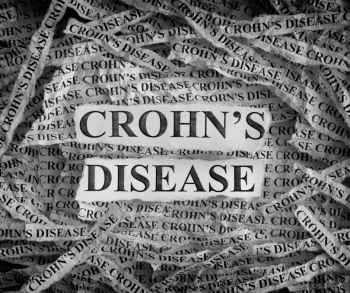Crohn's Disease and the Elderly
August 28, 2025

Crohn’s disease is a condition in which the digestive tract becomes inflamed and irritated, creating pain, weight loss, fatigue, and severe diarrhea in the person who has the condition. This lifelong condition is usually diagnosed in adults in their 30s, but it’s becoming more common for it to strike the elderly as well. Whether your elderly loved one has had Crohn’s disease for decades or if recently been diagnosed with this serious health condition, helping him cope with the symptoms and manage them so he can continue to enjoy life will be an important part of your caregiving if you have taken on that role.
Crohn’s Disease Symptoms
Crohn’s disease can affect any part of both the large and small intestine. It might affect several parts or just one, and symptoms will be based on which area is affected.
Common Symptoms include:
- Pain and cramping in the belly area
- Diarrhea
- Extreme fatigue
- Fever
- Blood in the stools
- Mouth Sores
- Reduced appetite and weight loss
Why Crohn’s Disease is More Dangerous for Seniors
Any type of health condition can be more dangerous for seniors because of their reduced ability to fight off infections and their frailty. Seniors are often more likely to be overcome by symptoms of a negative health condition that can then be compounded with other health issues, putting the senior at risk.
One common risk factor seniors (and their caregivers) need to be on the watch for is dehydration. Severe diarrhea can lead to dehydration. This is especially true for the elderly, who do not keep as much water in store in their body, making it easier for them to become dehydrated more quickly.
Another concern can be weight loss if your senior is already at a low weight. Crohn’s disease can create enough discomfort that many people stop eating as much as they should to avoid the complications of the disease. If your senior is already at a low weight, even losing another five percent of her weight can put her in danger of health complications.
Home Care for Crohn’s Disease
Your loved one’s doctor will work with you and your loved one to develop a health plan to help him stay healthy and manage the symptoms of the disease. It may involve medications from his doctor, but there will also be steps he can take at home to reduce the flare-ups as well as their intensity.
- Stop smoking. If your loved one smokes, they need to stop this habit. Smoking increases the complications of the disease, leading to more relapses and more intense treatments needed, such as surgery.
- Reduce stress. While stress doesn’t cause Crohn’s disease, it can intensify symptoms. Talk to your loved one about what causes him stress and how you can help reduce it. It might be helping him manage finances, assisting with home care chores, or taking steps to reduce feelings of loneliness and isolation.
- Drink plenty of fluids. He should avoid drinks that have caffeine, which stimulates the bowels, and strive for more water each day.
- Eat smaller meals.
If fatigue is a symptom your loved one struggles with, consider having a home care team help him around his home so that he can participate in activities that bring him joy instead of using all of his energy in home care tasks like cleaning, laundry, and meal prep.
If you or your loved one is looking for Home Care in Morgan Hill, CA, please call Familiar Surroundings Home Care.
Santa Clara County: (408) 979-9990
San Mateo County: (650) 353-9777
Santa Cruz County: (831) 480-3990


